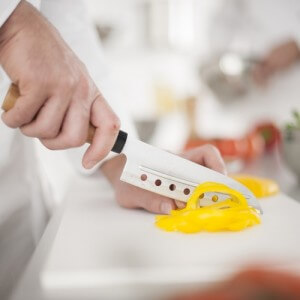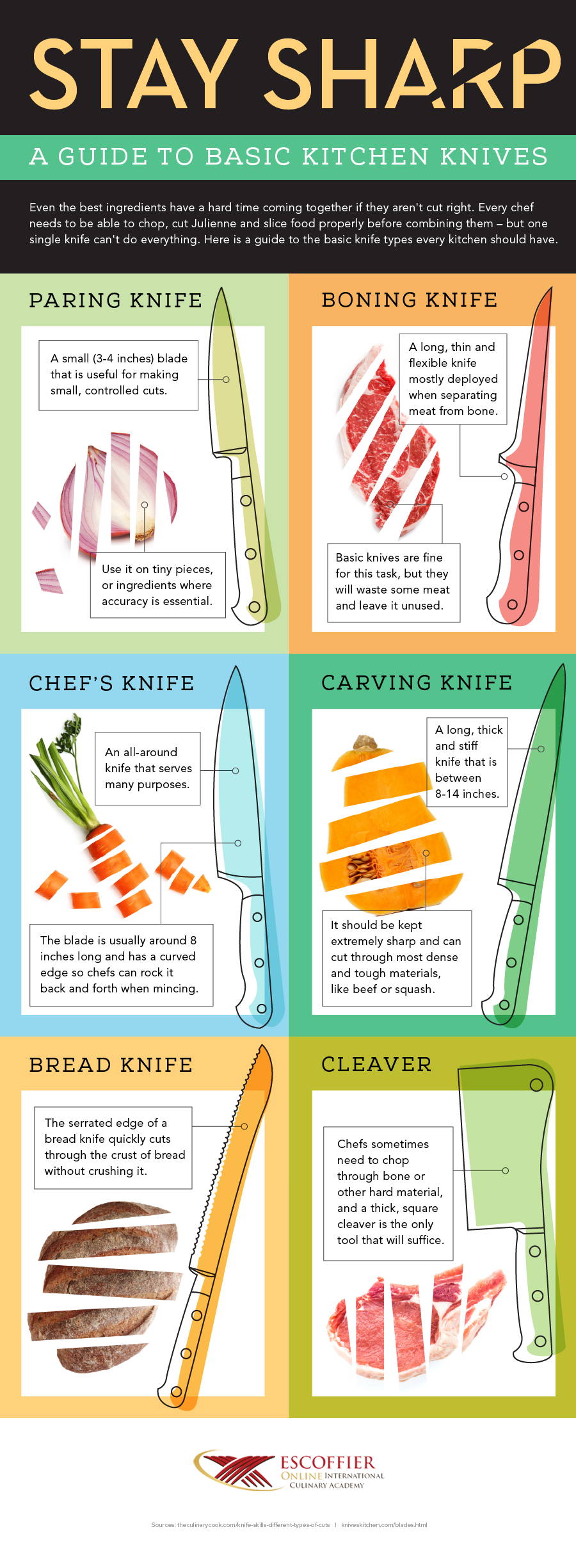4 Knife Tips For Better Cuts In The Kitchen
A chef’s knife set is one of the most important tools in the kitchen. Without good knives, it can be a major challenge to execute culinary maneuvers effectively and efficiently when putting together a meal. Knowing how to properly cut a wide range of foods is imperative to ensuring that they cook evenly and have a nice presentation. Consider these four tips for keeping your knives in good shape and bettering your cuts:
- Use the right knife for the job
Chefs don’t solely rely on one knife because different blades are ideal for various tasks. Every home cook should have a paring knife, boning knife, chef’s knife, carving knife, bread knife and cleaver. These blades allow cooks to safely accomplish a variety of culinary tasks most effectively. Once you become an expert with a basic knife set, consider purchasing specialty knives for more complex culinary tasks, such as a tourne knife or an oyster knife. - Sharpen knives regularly
Gear Junkie notes that there’s a lot of technique involved in properly sharpening knives, but this process should be done in your kitchen on a regular basis depending on how much you utilize each knife. A dull knife is often more dangerous in the kitchen than a sharpened one, because it may be more prone to moving off course. - Practice your technique
Learn how to use each knife for its main purpose. Furthermore, to be most efficient in the kitchen, you should learn essential chopping skills so you can quickly slice, mince and julienne ingredients. Serious Eats recommends that every cook know how to slice, chop, back-slice and rock chop at the very least. Though mastering your knife skills may take a little practice, in the long term it will help you develop strong flavors and ensure that your food cooks more evenly.
4. Exercise knife safety
Your knifes should always be thoroughly cleaned and sharpened before use. Make sure to always chop up your ingredients on an appropriately-sized cutting board and, as noted earlier, always use the right knife for the job. Avoid using knives for other purposes, such as opening cans or boxes. Always store knives in a safe location where they won’t potentially fall to the floor. If knives get greasy or slippery, stop working and take the time to clean the handle.



